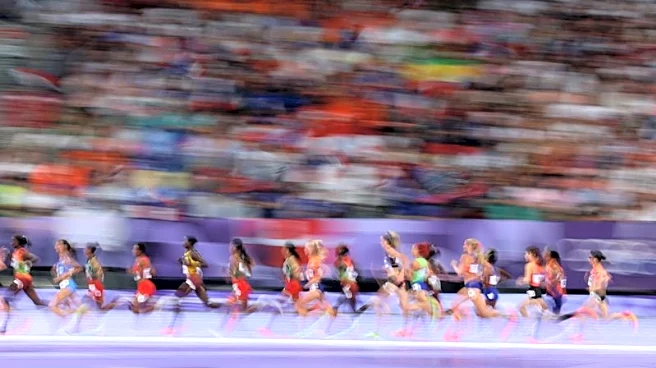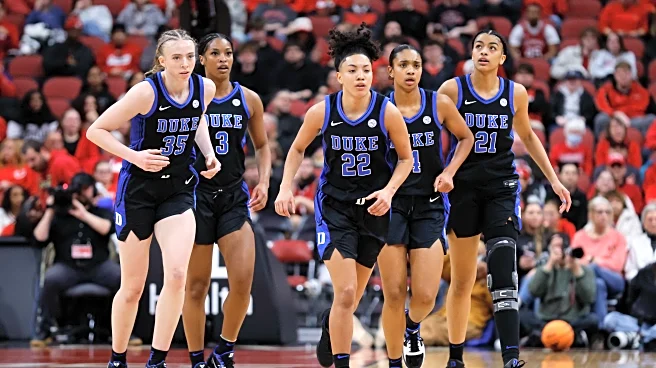MANCHESTER, England (Reuters) -Female Canadian athletes have been told that the new gene tests they recently underwent do not comply with World Athletics' requirements, leaving them scrambling to complete new tests before the September 1 deadline for the world championships.
French athletes are also seeking meets and camps outside their country to complete the one-off tests after the Ministry of Health and Ministry of Sports ruled them illegal in France.
Athletics Canada commissioned Dynacare to conduct
SRY gene tests, which help to determine biological sex, at the recent national championships.
However, in an email sent this week to athletes and seen by Reuters it said Dynacare "has advised us that the test kits they provided were not of the required standard."
Athletics Canada CEO Mathieu Gentes told Reuters on Friday that the federation is "doing everything within its power in the interest of athletes to ensure that we meet World Athletics' September 1st deadline for completion of the test.
"It's a rapidly evolving situation which we're dealing with in real time," Gentes said. "We are working on solutions to assist athletes in locations around the world."
Dynacare, who were not immediately available to comment, are sending new test kits to athletes based in Canada and the U.S., along with testing locations, according to Athletics Canada.
The French Athletics Federation (FFA) had planned to test athletes at the national championships but was told "such tests are prohibited under the French Bioethics Law enacted in 1994," the FAA said in a statement to Reuters.
"As a result, ultimately, no action was carried out.
"The federation is confident in World Athletics' ability to quickly find a solution and to ensure that French athletes can take part in international competitions under the best possible conditions."
World Athletics is working with the French federation to help athletes obtain tests at other meets or at their pre-worlds training camp outside France, said Jackie Brock-Doyle, Director of Special Projects for the sport's governing body.
Brock-Doyle also said World Athletics is working with federations from Poland, Belgium and Switzerland to help facilitate testing for athletes competing at the four remaining Diamond League meetings hosted by those countries.
TEST APPROVED
World Athletics approved the introduction of a test to determine if an athlete is biologically female at their council meeting in March.
"(The federations) all knew in March that we were going to introduce the SRY test," Brock-Doyle told Reuters.
"We were asked during the press conference, 'Would we be bringing it in for the world championships?' And we said at the time, 'Yes, that is our intention.'"
When pressed for details about the test at the March press conference, World Athletics President Sebastian Coe said: "The process is very straightforward, frankly very clear and it's an important one. And we will look for a testing provider, we will work on the timelines."
World Athletics then announced details of the SRY test on July 31.
"It's really important in a sport that's permanently trying to attract more women that they enter a sport believing there is no biological glass ceiling," Coe said in a statement at the time. "The test to confirm biological sex is a very important step in ensuring this is the case."
Brock-Doyle said World Athletics was not worried that female athletes would miss the September 13-21 worlds in Tokyo due to a failure to secure a test by the deadline.
Brock-Doyle, who estimated that 40-50% of athletes have been tested, said those who have completed the test but are still awaiting the result past the deadline can compete in Japan.
"Not every single result may come through, because some countries it may take two, three weeks," she added.
An adverse result -- and potentially that athlete's performance at the worlds -- would be investigated afterwards.
Brock-Doyle also disagreed with criticism that the genetic testing regulations were pushed through too quickly.
"Would it have been better if we'd had a little bit more time? Maybe," she said. "But the reason we've chosen the world championships is that it's probably around 80-plus percent of all our elite (female) athletes there."
(Reporting by Lori Ewing; Editing by Ken Ferris)


















